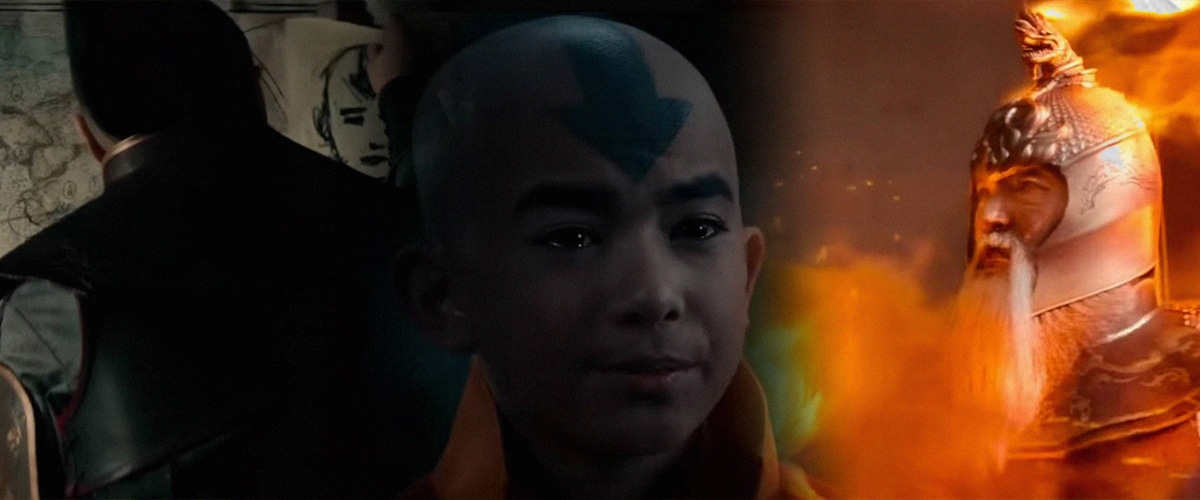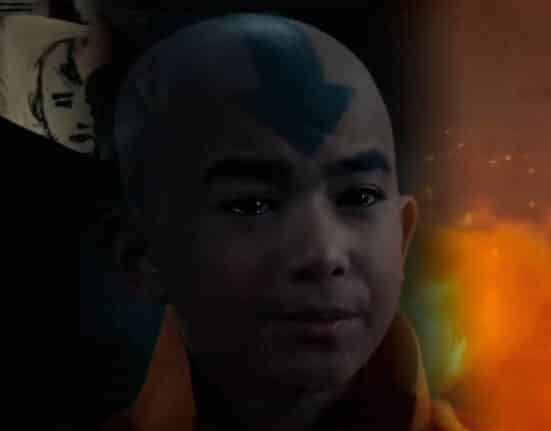Warning: may contain spoilers
THE series Avatar: The Last Airbender has always been present in most people’s childhood, as a matter of fact–the series is so special that it made its way to a 2024 live-action in Netflix.
Along with its partnership with Avatar’s OG producer Nickelodeon—the live-action of Avatar: The Last Airbender aired on Netflix last February 22. Ever since the series release, the show has gathered a lot of positive reviews due to its storyline, casting diversity, and seamless CGI effects.
Synopsis
After the death of an Avatar, the new incarnation emerges into a new body.
Avatar: The Last Airbender is a story about a young boy named Aang who is set to save the world, but to do so–he must learn all four elements: water, earth, fire, and air.
The 8-episode Netflix series follows the journey of Aang–who while trying to save the world is trying to learn the four elements by traveling around different nations to meet his late fellow avatars.
While all the Avatar can help the young boy upon his journey—in the end, it is up to Aang to find out what kind of Avatar he is and how he can save the world.
Casting Diversity
The live-action remake of the Avatar series had adapted into more diverse casting and one of the things that excites the Filipinos is the casting of 11-year-old Filipino-Canadian actor Gordon Cormier, who played main character of Aang.
Cormier first made his television debut in a 2019 American comedy series entiled “Get Shorty.” He was featured in the show’s season 3 first episode “What To Do When You Land” along with comedians Chris O’Dowd and Ray Romano.
The star is also revealed to have Filipino roots, descendants from her Pinay mother from Sta. Rosa, Laguna.
Aside from Gordon Cormier who played as the Avatar in the movie, another Filipino who stars in the series is Filipino-Am actor Dallas James Liu who played as the fire prince Zuko.
The Last Airbender
Being told you needed to save the world is an impossible task for a 12-year-old, especially if you’re just starting to train to further enhance your airbending skills. In the scene where Aang is told that he is set to save the world from the firebender’s attack—we cannot blame him for being frustrated as he doesn’t know how he’d be able to beat them.
Upon knowing that he’d be the one to save the world against the fire nation attack, Aang along with his furry friend Appa flew off only to be greeted with a storm.
The worst part about him leaving for a bit just so he could clear his mind was when the Firebenders had timely reached the Airbender’s city.
Without the presence of the Avatar, the firebenders easily burned all the airbenders within the city—leaving no surviving airbenders behind.
After the firebender successfully terrorized and destroyed the homes of airbenders, I learned that Aang had been stuck inside big ice for a hundred years.
At some point, Aang leaving his city for a bit was a good decision as he was able to save himself from the conflict that the firebenders have.
Aang was later discovered by Southern Water tribe siblings Katara and Sokka after Katara tried to retrieve their boat with her waterbending skills.
While trying to retrieve their boat with her waterbending, she accidentally caused a quake—causing the ice to break and freeing the Avatar from his 100 years of slumber.
Fire bender’s superiority Complex
It’s been 3 years since Zuko was given an impossible task and upon witnessing the iceberg quake, fire prince Zuko never felt more enthusiastic.
Given as an impossible task by his father (Fire Lord Ozai) after their duel, Zuko is set to haunt the Avatar to come back home.
This is deemed to be a punishment for Zuko for showing compassion towards his enemy—marking that compassion is only for the weak.
Despite not agreeing with his father’s belief regarding the firebenders being the superior ones, somehow he is forced to believe it as Zuko himself is a firebender.
While each individual is entitled to have their own sets of opinions and beliefs that can go against their community, somehow—going against them could sometimes lead you into a dilemma whether you’re doing the right thing or not.
I wouldn’t say that the fire element is the superior element among the four although I would agree on the part where it’s much more destructive than the other elements. Whenever we witness a fire, the element is often associated with the idea of being aggressive.
Associating the idea of the fire element with rage and hostility isn’t a new thing and as for the aggressive nature of the Fire Lord, I would say that this is something that I would deem as stereotypical.
Within the series Avatar, it seems like the fire nation has this superiority complex by having the idea of them being more powerful than the other elements. The same thing could be said when Aang asks Zuko’s uncle Iroh about it, to which he replies that attacking the other nation just so happened to be part of the fire nation’s traditions.
Being compassionate towards another person is also something that the Fire Nation deems to be for the weak–however, this is something that isn’t believed by some firebenders.
(insert pic of Zuko showing compassion towards his father while in a duel)
The Avatar series depicts Prince Zuko as the antagonist but upon exploring his backstory, he had shows signs of compassion toward the people around him.
(Insert pic of firebenders having a meeting for their next attack)
During a scene where the firebenders are having a meeting for their next attack–Zuko speaks up about how the general’s plan is considered to be terrible as the soldiers will only end up dying for nothing.
Prince Zuko may be seen as the antagonist for the first season of Avatar’s live-action but as someone who witnessed the episodes unravel, my depiction of Prince Zuko is just someone who happened to have a big ego rather than being a total bad guy.
While his choice of actions in terms of capturing the Avatar may seem a bit questionable–Prince Zuko is doing this because he wants to prove something.
Skepticism at its finest
Just like Aang—Southern Water tribe siblings Sokka and Katara were given an impossible task at a very young age.
While the task that was given to the siblings (particularly to Sokka) might seem like a smaller duty, unlike Aangs, having to protect and take care of the whole village after the sudden death of your parents can be seen as something more than a heavy duty.
On the flashbacks scene, the series showed a glimpse of events during the younger days of the siblings—particularly, the death of their parents.
During these scenes, it was revealed that Zya (the sibling’s mother) was killed by a firebender while being on a hunt for the waterbender while their father Hakoda left the village to fight the fire nation.
While being away to fight the fire nation, Hakoda left Sokka to be in charge of the Southern Tribe Village while he was away. Meanwhile, it wasn’t confirmed whether Sokka and Katara’s father died.
Seeing that Sokka and Katara only have each other, in every challenge they encounter—they protect one another. We often see Sokka being protective of his little sister Katara to the point of being skeptical of everything he perceives as ‘dangerous.’
In every familial background, it is often seen that the men in the household are the ones to protect the women. As Sokka is the only man left in the current house and the older brother of Katara–it is expected that he will be protective towards his little sister.
This can be said when they first found Aang where Sokka was first seen to be skeptical towards the avatar.
When Katara insists on bringing Aang to the water village, Sokka opposes the idea despite seeing Aang as this helpless little boy. While seeing Sokka refusing to help the little boy can be deemed as a little vile, we cannot blame him on this as he wasn’t sure whether having to bring Aang into the village would ensure their safety.
And he wasn’t wrong about this as the fire nation was able to track down the Avatar in the Southern Water tribe village.
Being hurt can turn you evil
There’s always this idea on how pain drives person to change, but in the world of Avatar–being in pain can cause you to be evil.
In the episode on where Aang along with Sokka and Zatara–they met a guy named Jet who helped them enter the Earth kingdom by smuggling them inside.
Zatara later found out that Jet has been secretly fighting the fire nation along with his crew, referring to themselves as the ‘good guys.’
While the idea of fighting off the bad ones will get you the impression of being the hero, being heroic with bad intentions can also make you end up being the bad one.
Upon witnessing the mechanic give out information to the firebender’s spies, both Katara and Jet immediately thought of one thing and that is to stop the spies from giving out the information that they’ve obtained from the mechanic.
Both Jet and Katara later fought the spies, evidently killing them in the end.
After the fight with the firebenders, Jet and Katara later had a heart-to-heart talk. This is the part on where Jet had revealed that he lost all the people he’s close with due to the war.
While the actions of Jet and Katara are considered heroic itself, we later find out that Jet and his crew had planted a bomb on the mechanic’s luggage.
Katara later argued that Jet’s plan is an act of terrorism with Jet arguing that the mechanic is a traitor and that he needed to die.
Pain changes people and I’m sure that this is something that most of us can relate to, however, we always have this freewheel on whether to let this pain turn us turn evil. However, in the case of Jet and his crew, they turned into the bad ones by plotting to kill the mechanic for putting his nation in danger.
Personally, I would say that Jet’s plan can come off as a great idea because there’s a traitor that’s putting the people of your nation at risk. However, they could’ve cultivated another plan for this as bombing the mechanic in front of the king (who just wants to protect the earth kingdom) would most likely start a fiasco amongst the citizens.
They could’ve executed another plot that wouldn’t put the innocent ones at risk.
It was later revealed that the reason behind the mechanic snitching was later revealed and this is due to the threat that he received from the firebenders. The mechanic was given a choice and he chose to do the lesser evil by giving out “useless” inventions and information to the firebenders.
This is in exchange for having to protect his son and nation from the greater danger that the fire nation holds.
It is clear that Jet and the mechanic are both hurting, however–their different approach towards the situation can be easily determined as different as one inclined with the idea of vengefulness while the other one is choosing the lesser evil.
I’m here now
Being asleep for a hundred years can surely make you miss out on a lot of events, and in the case of Aang—he wasn’t able to help out the nations during the time they needed the Avatar the most.
Since Aang was able to witness all the damage during the time he was gone, he felt guilt for being absent from the event where he was needed the most. Since he was able to retrieve himself from 100 years of slumber—the Avatar is now doing the best he can to save more people.
The future of Avatar: The Last Airbender
Yesterday, Netflix announced that the Avatar will be set to return for seasons 2 and 3.
Upon releasing the announcement, a lot of netizens expressed their excitement towards the season renewal of the series.
WE MADE IT pic.twitter.com/v60DYikSMe
— Juanny🐉 (@kingdujuan) March 6, 2024
— Creight🧪 (@xCreightt) March 6, 2024
Big win
— Leslie Kay 2.0🐇🔥 (@Lesskay_1) March 7, 2024
Cheers to more cabbages 🤩🙌 pic.twitter.com/1Tp6EVZO04
— Google Play (@GooglePlay) March 6, 2024
When when is the next season coming!!!!!
— Richard “BoY kInG” 🚀🚀🚀 (@mrRichOne89) March 6, 2024









